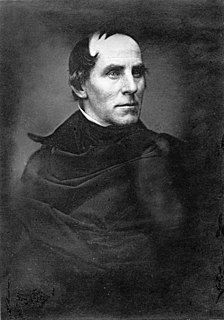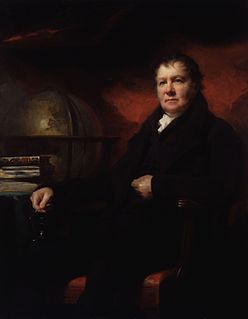A Quote by John Constable
The climax of absurdity to which art may be carried when led away from nature by fashion, may be best seen in the works of Boucher.
Related Quotes
For if Men are to be precluded from offering their Sentiments on a matter, which may involve the most serious and alarming consequences, that can invite the consideration of Mankind, reason is of no use to us; the freedom of Speech may be taken away, and dumb and silent we may be led, like sheep, to the Slaughter.
It has always happened hitherto that whenever I have begun to feel an attachment to places, persons, or things, of a merely temporary nature, I have been carried away from them. Amen! May I live as a stranger and pilgrim upon the earth. May we be brought to that better country where painful changes are known no more.
The truth may often be carried about by those who themselves remain all unaware of it. They bear that which has weight and substance and yet for them has no name whereby it may be evoked or called forth. They go about ignorant of the true nature of their condition, such are the wiles of truth and such its stratagems.
A work of art rests its merits in traditional qualities. It may constitute a remarkable feat in craftsmanship; it may be a searching study of psychological states; it may be a nostalgic glance backward; it may be any one of an infinite number of concepts, none of which may have any possible bearing upon its degree of newness.
Criticism is a study by which men grow important and formidable at very small expense. The power of invention has been conferred by nature upon few, and the labour of learning those sciences which may, by mere labour, be obtained, is too great to be willingly endured; but every man can exert some judgment as he has upon the works of others; and he whom nature has made weak, and idleness keeps ignorant, may yet support his vanity by the name of critic.
And rural nature is full of the same quickening spirit-it is, in fact, the exhaustless mine from which the poet and the painter have brought such wondrous treasures-an unfailing fountain of intellectual enjoyment, where all may drink, and be awakened to a deeper feeling of the works of genius, and a keener perception of the beauty of our existence. For those whose days are all consumed in the low pursuits of avarice, or the gaudy frivolities of fashion, unobservant of nature's loveliness, are unconscious of the harmony of creation
The Author of nature has not given laws to the universe, which, like the institutions of men, carry in themselves the elements of their own destruction; he has not permitted in his works any symptom of infancy or of old age, or any sign by which we may estimate either their future or their past duration. He may put an end, as he no doubt gave a beginning, to the present system at some determinate period of time; but we may rest assured, that this great catastrophe will not be brought about by the laws now existing, and that it is not indicated by any thing which we perceive.
We are conscious of an animal in us, which awakens in proportion as our higher nature slumbers. It is reptile and sensual, and perhaps cannot be wholly expelled; like the worms which, even in life and health, occupy our bodies. Possibly we may withdraw from it, but never change its nature. I fear that it may enjoy a certain health of its own; that we may be well, yet not pure.








































